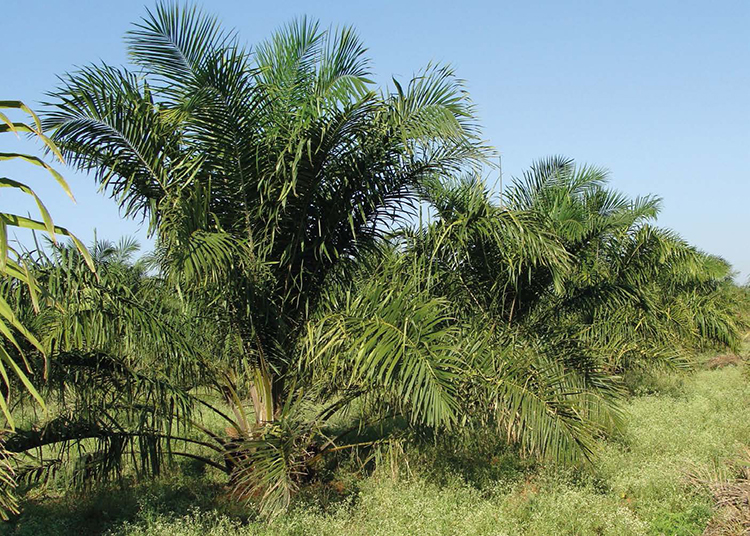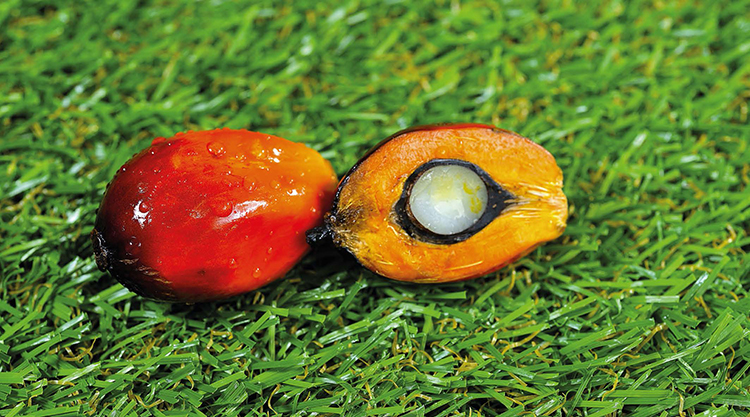Malaysia has an abundance of natural resources – especially, and controversially, of palm oil – and a public sector that favours innovation and attracts investments. These are the country’s main strengths, making it one of the major global bioeconomy protagonists. The Bioeconomy Corporation acts as a coordinator for all activities in the sector: under the purview of the Ministry of Agriculture and Agro-based Industry (MOA), it is a leader for the development of biobased industry in Malaysia. The agency is owned by the Ministry of Finance and governed by the Biotechnology Implementation Council. Its task is to achieve all the objectives set out in the national bioeconomy policy and to identify the needs of industry and research, giving financial and commercial support.
The Strategy
Bioeconomy has been a priority in Malaysia since 2010, when the national strategy was published. This was the evolution of an earlier biotechnology strategy that had been approved in 2005. The Southeast Asian country – first in the region, and second in Asia (after China) to adopt such a strategy – aspires to make full use of its immense wealth of biodiversity and natural resources so that industrial biotechnologies and bioeconomy become important engines for growth. In 2012, the Bioeconomy Transformation Programme (BTP) built on the strategy to identify ten projects (so-called “entry points”) for the development of the national biobased industry sector. Since 2010, according to data from the Bioeconomy Corporation, the sectors that make up the bioeconomy – in particular agri-food, chemical and energy – contributed 13.4% of the entire Malaysian GDP (106.7 billion Malaysian ringgit, or approximately 23 billion euro). Through a stimulated 15% annual growth, the government in Kuala Lumpur expects the sector’s size to grow to 143.1 billion ringgit (31 billion euro) by 2020 and to 181.2 billion ringgit (39 billion euro) by 2030.
A fundamental pillar of the BTP is the Bioeconomy Community Development Programme (BCDP), which aims to increase the use of marginal, abandoned and unused lands to create new revenue flows for farmers, and to make new, organic, and renewable resources available to the biobased industry. The Programme also recognises biotech companies by granting them special BioNexus status. This allows businesses to receive exceptional tax incentives (up to ten years of exemptions), subsidies and other measures to facilitate growth. Between 2016 and 2018, investments collected by the 283 BioNexus companies grew by 150 million ringgit, from 6.66 to 6.81 billion. In the same period, over 10,000 jobs were created. 5 billion dollars were made available through the country’s bioeconomy agenda, in a push to create 160,000 new jobs by 2020,
Former Prime Minister Datuk Seri Najib Razak, at the unveiling of the Transformasi Nasional 2050 national development plan, stated that “bioeconomy – through innovation and technological advancement – has the potential to make a significant contribution towards our country becoming a knowledge-based, high income nation.”
The development of talent and entrepreneurship to help the sector prosper is a key element of the national strategy. To this end, Malaysia – through the Bioeconomy Corporation – has established partnerships with recognised international research institutions, such as the California Institute for Quantitative Bioscience (Qb3), based in San Francisco.
The Qb3-Malaysia Programme offers the most promising Malaysian scientists a chance to expand their scientific education within Qb3, and to take advantage of the Bay Area’s entrepreneurial environment. The Programme also led to the formation of spin-offs that can operate within the research incubator at Qb3, located near the University of California, San Francisco campus. This allows Malaysian companies to accelerate their efforts in bringing scientific discoveries from the lab to the market. All of this guarantees high-level support for technological transfer, but also direct access to international capital and a solid base for entering the American market.
 |
|
Sarangib/Pixabay |
Attracting Businesses
Malaysia’s efforts to attract investments in the bioeconomy have led to important successes in recent years: companies such as CJ CheilJedang (South Korea), Arkema (France), Elevance (USA) and Leaf (Australia) have all made important investments. Alongside this, Malaysian petrochemical giant Petronas has been looking at biobased renewable resources with increasing interest.
The year 2015 saw the inauguration of the first integrated bio-methionine and thiochemicals plant – owned by CJ CheilJedang and Arkema – at the Kertih Biopolymer Park (KBP) in Terengganu. Covering 70 hectares within the KBP, the integrated structure is the first in the world to use the fermentation process to produce bio-methionine, an amino acid commonly used in the production of animal feed. Thanks to this French-Korean partnership, Malaysia is now the foremost global producer of green bio-methionine. CJ is a global leader in industrial biotechnology with innovations for fermentation and purification. Arkema, owner of the technological platform, is a global chemical company and a leader in the production of chemical specialties. The integrated plant is a platform for CJ – through its subsidiary CJ Bio Malaysia Sdn Bhd – to respond to the high demand for methionine in Asia. For Arkema, the project represents a new industrial base in Asia to be closer to its clients there, through its subsidiary Arkema Thiochemicals Sdn Bhd. The project also has the potential to help develop local skills in niche sectors such as chemical engineering and industrial biotechnology, offering opportunities for collaboration with universities and local research institutes.
Another important investment came from Elevance Renewable Sciences, a company from Illinois that transforms plant oils into high-performance chemical products. Elevance, led by Karl Schoene, started a partnership with Malaysian firm Genting Plantations to develop an integrated biorefinery – Genting Sdn Bhd – at the Palm Oil Industrial Cluster in Lahad Datu. This is the result of a 25:75 joint venture between the American and Malaysian companies: a plant that will produce 240,000 MT of special chemical products (including lubricants, surfactants and detergents) using Elevance’s technologies for processing plant oils. These innovative technologies are based in metathesis, a chemical process that, thanks to a specific catalyst, allows for the production of new biobased chemical products.
As part of the collaboration agreement, Genting accepted to pay Elevance’s licence and the planning expenses, while Elevance agreed to transfer intellectual property rights and provide technical and consultancy services. The American company also has the exclusive right-of-sale for all specialised chemical products made in the biorefinery.
“Genting Integrated Biorefinery will spearhead our Group’s expansion into the high value-added palm oil downstream segment. This will showcase palm oil’s immense potential to serve an ever-increasing variety of applications and further complement the many pioneering initiatives we are pursuing in our ongoing drive to unlock palm oil’s full potential through scientific innovation,” said Genting Plantations CEO Tan Sri Lim Kok Thay upon signing the agreement. Elevance’s low-pressure, low-temperature process makes use of innovations in the catalysis of methathesis that led Yves Chauvin, Robert Grubbs and Richard Schrock to the Nobel Prize for Chemistry in 2005. This allows for much lower energy use and reduces greenhouse gas emissions by 50% compared with petrochemical technologies. A highly efficient and selective catalyst is used to break down natural oils and recombine the fragments. This allows for lower pollution levels at the source, as well as lower production costs and capital expenditures compared to petrochemical refineries.
Malaysia’s efforts to attract investments has also led to a partnership between Leaf Resources, an Australian company that transforms non-food biomass into renewable chemical products, and Claeris, a leading American company in the planning and development of industrial plants. The goal is to build a biorefinery in Segamat, in Johor State. The project is supported by Agensi Inovasi Malesia (AIM), the national agency for innovation, and by the Bioeconomy Corporation. Petronas Chemicals Group is also involved as a partner.
Petronas and Leaf have signed a non-binding agreement protocol that includes, among other things, a study of chemical markets and biotechnologies that are ready for commercial use. Subject to satisfactory conclusions from the study and the approval of Petronas, the parties can pursue a netting agreement for the fermentable sugars produced at the Segamat biorefinery. The conditions for this are to be agreed by the parties in accordance with global standards for project finance.
Malaysian Biodiversity
Malaysia is one of the 17 Megadiverse Countries that contain the majority of the world’s living species. The group also includes Indonesia, Australia, South Africa and the United States. The country therefore has a rich source of biodiversity, which – if used in a sustainable way – can provide important raw materials to the bioeconomy. In Malaysia, the agricultural sector generates approximately 12% of GNI. In the creation of this agricultural value, a significant amount of biomass is generated each year through a variety of crops such as palm oil, rubber and rice. Given the enormous opportunity offered by agricultural biomass, the National Biomass Strategy 2020 (NBS 2020) was launched in 2011, focusing on palm oil biomass as a starting point. The Bioeconomy Corporation states that the vast majority of palm oil biomass is returned to the soil as organic fertiliser to reintegrate and provide nutrition to the soil. While this opportunity is immense, palm oil biomass – according to data from Agensi Inovasi Malesia – also has higher-value uses, such as wood products, energy pellets, bioenergy, biofuels and organic-based bioproducts.
 |
|
Tristantan/Pixabay |
The Palm Oil Issue
The production of palm oil is vital for the Malaysian economy. The country is the second producer in the world, after Indonesia. It is responsible for 39% of global palm oil production, and for 44% of global exports. Palm oil is so strategic that the Malaysian Palm Oil Board (MPOB) was set up by the government to promote and develop the palm oil sector within the country. The Malaysian palm oil industry generates approximately 90 million tonnes of lignocellulose biomass every year. This figure is undoubtedly significant within the framework of a biobased industry that is constantly searching for renewable organic resources. In 2010, in response to concerns about the social and environmental impact of palm oil, the Malaysian government made a commitment to limit the expansion of plantations, maintaining forest cover in at least half of the country’s territory. Nevertheless, in March 2019, the European Commission established that palm oil crops cause excessive deforestation and that its use in fuel for transportation will have to be gradually phased out by 2030. For this reason, the relationship between Malaysia and the EU is not all rosy, the former having accused Brussels of wanting to start a trade war because of policies that Kuala Lumpur believes to be “unjust” and an example of “the rich trying to impoverish the poor.”
Bioeconomy Corporation, www.bioeconomycorporation.my

Interview with Alex Baker, Managing Director and CEO of Leaf Resources
by M. B.
Malaysia’s Good Foreign Investment Policies
Alex Baker is Managing Director and CEO of Leaf Resources, the Australian biochemical company playing a leading role in the Malaysian bioeconomy sector.
In this Renewable Matter interview, Alex Baker tells us why Leaf Resources has invested in Malaysia, what the strengths of this approach are and what role is being played by the Bioeconomy Corporation, the lead development agency for the bio-based industry in Malaysia, under the purview of the Ministry of Agriculture and Agro-based Industry (MOA).
Why did you decide to invest in Malaysia and what are the main strengths of the Malaysian Bioeconomy?
“Leaf Resource’s technology converts agricultural biomass into carbon rich fermentable sugars. Therefore, we need to focus our technology deployment so as to develop projects in countries with a strong policy framework and of course a significant long term and appropriately priced biomass supply. Malaysia has both of these attributes as well as good policies that favour foreign investment.”
What are the next steps?
“The Company’s priorities are to formalise the new ownership structure of Leaf Malaysia OpCo Sdn Bhd (involving our Malaysian partner with a 51% majority ownership) and completing the submission of the application to qualify the project for the Malaysian Government’s TDA Industrial Collaboration Program (ICP). Once additional funding is ensured, the Company will continue the Front-end Engineering and Design study (FEL3) that will support the Malaysian investment package. The Company will continue to engage with potential offtake partners with a view to entering into contractual commitments when the financing programme is in place.”
How important was the role played by the Bioeconomy Corporation and other agencies?
“We have enjoyed the continued support from AIM (Agensi Inovasi Malaysia), MIDA (Malaysian Investment Development Authority), Bioeconomy Corp and the TDA (Technology Depository Agency). Each agency has an important role and a unifying policy based on the Malaysian Biomass Strategy 2020.”
What are the main differences between the Asian, European and US Bioeconomies?
“The ASEAN region is highly productive in terms of biomass and therefore has a focus that is different from Europe and the US, that both have well established agricultural policies and systems. There is a willingness to leverage the region’s natural bioresources and feed those into a number of already established chemical and material manufacturing industries. Furthermore, the China/US trade pressure has opened up an opportunity for the ASEAN region to become a major player in the global bioeconomy.”
Leaf Resources, http://leafresources.com.au
National Biomass Strategy 2020, www.nbs2020.gov.my
Top image: Goodfreephotos


